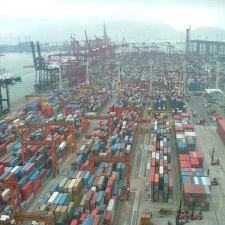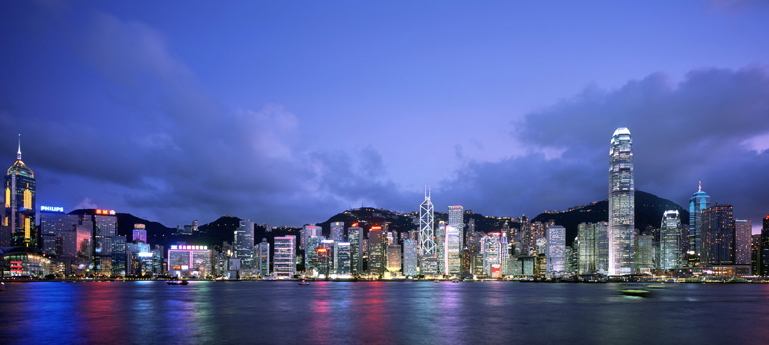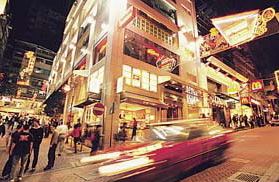Travel News
A “Belonger” Looks Back at Hong Kong As Its Capitalist Heart Beats On
 More than 10 years ago, on a blustery night marked by torrential rain, Hong Kong was returned to China after 155 years of British colonial rule.
More than 10 years ago, on a blustery night marked by torrential rain, Hong Kong was returned to China after 155 years of British colonial rule.
Margaret Thatcher, Prime Minster in the early 1980s, didn’t like the idea of relinquishing the Crown Colony that had come to be known as Britain’s Pearl of the Orient. Neither did thousands of Hong Kong Chinese, who spent most of the 1990s immigrating to other Commonwealth cities.
Blimpish British expats at the staid Hong Kong Club predicted chaos when “the Chinese chappies” began patrolling Queens Road.
Fearing an end to tourism and the collapse of the property market, the legendary Kadourie family announced its intention to shutter its venerable Repulse Bay Hotel.
“The family hired the last British army unit based in the colony to perform a Beating of the Retreat in the hotel’s ballroom the night before the hotel closed its doors,” remembers journalist Anthony Paul. “This was a 16th-century military ceremony to recall patrolling units to their castle. The event carried a message that went far beyond a hotel closing. The ceremony’s central hymn, Abide With Me, had these words:
Swift to its close ebbs our life’s little day;
Earth’s joys grow dim; its glories pass away;
Change and decay in all around I see;
O Thou who changest not, abide with me.”
Change did come, but not in the way people expected. Instead of imploding, Hong Kong continued to grow. Having pegged its dollar to the U.S. greenback, the newly proclaimed Hong Kong SAR (Special Administrative Region) avoided the 1997 economic collapse affecting the rest of East Asia. The Hang Seng (stock) Index stayed strong. And tourists continued to stream through Britain’s final gift: the beautiful $20 billion Chek Lap Kok airport.
Ten minutes outside Chek Lap Kok, which is connected to Kowloon and Hong Kong’s central business district by a broad, uncluttered highway and efficient rail system, the former colony-turned-SAR reveals itself in the form of new bridges, container terminals and high-rise cities that didn’t exist a decade ago.
Hong Kong is rightly known as a shopper’s paradise. In the past, most goods flowed through merchant shops, large department stores or street hawkers in the night and daytime markets. Now high-rise shopping centers and sprawling underground plazas that snake between subway stops supplement these outlets.
The view of Hong Kong across Victoria Harbor from the Intercontinental Hotel remains as breathtaking as ever. Indeed, the view from the Intercontinental’s Lobby Bar or outdoor pool and Jacuzzi can be mesmerizing. If Hong Kong’s towering office blocks seem closer than before it’s because they are. Massive landfill projects on the southern side of the harbor (or as befits an ex-colony, “harbour”) have given the city a new Convention Center and ferry terminals.

Not all the changes are for the better. The Star Ferry terminal, once just across Connaught Road from the Mandarin Hotel, now sits on reclaimed land that takes four times longer to reach.
For almost two centuries, Western companies used Hong Kong as a base for doing business in China, taking advantage of its superior infrastructure, world-class banks, transparent financial markets and honest courts. But today many of those same companies have moved to Shanghai and Beijing to take advantage of China’s booming economy.
You’ll still find plenty of Hong Kong Chinese speaking English. But there are fewer expatriate businessmen and women on the streets. Since 1997, the number of Americans living in Hong Kong has declined 21 percent to around 28,000. There are 49 percent fewer Canadians and the Australian population has dropped by a third. Many of those who still call Hong Kong home are thinking about leaving because of the pollution created by largely unregulated factories across the border in the Pearl River Delta of Mainland China.
I should add that on the weekend I spent in Hong Kong last month, I saw no sign of air pollution. But I live in Los Angeles, so perhaps I’m not the best judge of clean air.
What I can say is that Hong Kong, when viewed from the observation deck atop Victoria Peak or from the top of a tram rolling through Wanchai, has none of the haze that residents of Dallas, Denver or Los Angeles encounter every day.
If you do happen to be in Hong Kong when the wind’s blowing down from China you can always take refuge inside one of the city’s bustling restaurants, bars and antique stories.
 One of the first places I visit whenever I return to Hong Kong is Hollywood Road, the staider part of which is lined with antique shops and furniture stories mostly selling quality reproductions of antiques. But amble east on Hollywood Road and you’ll wind up in Lan Kwai Fong, a bar and restaurant area that’s always the place to be on a Saturday night.
One of the first places I visit whenever I return to Hong Kong is Hollywood Road, the staider part of which is lined with antique shops and furniture stories mostly selling quality reproductions of antiques. But amble east on Hollywood Road and you’ll wind up in Lan Kwai Fong, a bar and restaurant area that’s always the place to be on a Saturday night.
Hong Kong taxis are relatively cheap and remarkably efficient, but most residents (who call themselves “Belongers”) use the extensive subway system, called the MTR. When I was a Belonger 25 years ago, there were only two subway lines.
Today, the MTR’s spotless rail cars go almost everywhere. You’ll still need to take a bus or taxi to residential areas on the south side of Hong Kong Island, but for most other destinations in Hong Kong or Kowloon the MTR is the cheapest and fastest way to go.
Some people argue that Hong Kong’s glory days are over, but I don’t buy that for a minute. You simply can’t ignore the magnificence of the city when you stand in the atrium of the Hongkong and Shanghai Bank building, survey Victoria Harbour, gin and tonic in hand, from the balcony of the China Club or take afternoon tea in the lobby of the Peninsula Hotel.
The trappings of colonialism may be disappearing fast, but Hong Kong’s capitalist heart beats as strong as ever.
Photo Credit(s): Hong Kong Tourism Board
For more Hong Kong travel information, check out Off the Brochure Travel Guide: Hong Kong, China.
- If you liked this article, check out this related travel feature on the changes in China proper, “The Symbol for 21st Century China Travel: Demolish”.
- Thinking about traveling to China for Olympics? Don’t miss our guide to the festivities: Bound for Beijing, A Guide to 2008 Olympic Travel.
- Hong Kong is well served by budget airlines like Oasis, as well as higher-end options like Cathay Pacific. Here’s how to go about Finding Cheap International Flights.
By David DeVoss for PeterGreenberg.com. David DeVoss lived in Hong Kong for five years while working as a correspondent for Time magazine.












